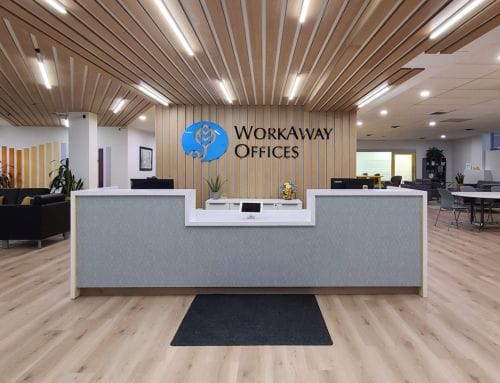What will motivate employees to feel satisfied and stay at their jobs?
It’s a difficult question, but one thing is for sure: it usually isn’t money. In fact, there are five key factors that the research tells us matter most in keeping people motivated and happy on the job. These include having autonomy or control over what they do; understanding what they’re doing; receiving feedback on performance; feeling like their work has meaning or makes a difference; and having opportunities for growth. Read on to find out more about each of these important motivational drivers!
How to keep employees motivated
There are five factors that research indicates are key drivers of employee motivation, listed below.
Autonomy or control over what they do: Employees are driven by the need for independence, discretion, and self-determination.
Employees want to feel like they’re in control of their own actions. They want to be able to choose how to do work, rather than just following orders or directions from supervisors. This is especially important when employees are doing something monotonous, but even if tasks are varied, giving employees a sense of autonomy is critical to establishing their intrinsic motivation. This is often why flexible hours can be so effective in motivating employees.
Understanding what they’re doing: This factor includes the need for cognitive clarity and understanding how their work relates to overall organizational goals.
At many companies, employee performance is assessed by managers who give them numerical ratings or grades. What these managers may not realize is that the way they communicate this information to employees has a significant impact on how it’s received and interpreted by those employees. When performance feedback incorporates explanation and context, employees are more satisfied with their evaluations and motivated to improve because they understand what the expectations look like in their role.
Receiving feedback on performance: This factor encompasses employees having clear goals and regular feedback on how they’re doing in their work.
When managers provide employees with ongoing feedback, it helps them feel like they know what’s expected and gives them opportunities to adjust and improve. But these benefits don’t come without a downside; too much guidance can actually make people feel less satisfied with their jobs. In this situation, employees feel like they’re being managed by the company rather than by their manager, decreasing their sense of autonomy and making them feel more resentful.
Having a sense of meaning or purpose in what they do: Employees want to contribute to something bigger than themselves.
Employees who have a clearer understanding of not only what their work means within their organization but also how it connects to the outside world are more likely to feel satisfied and feel more valued by their company. This is why when companies give employees opportunities to contribute to something that goes beyond the work they’re doing every day, such as volunteering for a cause or fundraising efforts, it can be incredibly effective in improving retention rates.
Opportunities for growth: Employees are motivated when they feel like there’s something new to be gained.
Being able to learn and grow both professionally and personally is what keeps employees engaged with their work. They want to feel like they’re constantly expanding their skillsets, increasing the amount of knowledge that they bring into the organization. This is why it’s especially important for managers to take time to provide formal or informal feedback on employees’ performance, discuss their future goals and give them opportunities for advancement.
The takeaway
Employees want to feel like there’s something new to be gained in their work-life – whether it’s learning a new skill or expanding responsibilities. This means it’s important for managers not only to provide ongoing feedback but also to give employees the opportunity to learn about different aspects of the company so that they don’t get bored with their current tasks. When an employer takes this approach by incorporating these principles into how they interact with their employees while setting realistic expectations for both parties, everyone wins!
What will motivate employees to feel satisfied and stay at their jobs?
It’s a difficult question, but one thing is for sure: it usually isn’t money. In fact, there are five key factors that the research tells us matter most in keeping people motivated and happy on the job. These include having autonomy or control over what they do; understanding what they’re doing; receiving feedback on performance; feeling like their work has meaning or makes a difference; and having opportunities for growth. Read on to find out more about each of these important motivational drivers!
How to keep employees motivated
There are five factors that research indicates are key drivers of employee motivation, listed below.
Autonomy or control over what they do: Employees are driven by the need for independence, discretion, and self-determination.
Employees want to feel like they’re in control of their own actions. They want to be able to choose how to do work, rather than just following orders or directions from supervisors. This is especially important when employees are doing something monotonous, but even if tasks are varied, giving employees a sense of autonomy is critical to establishing their intrinsic motivation. This is often why flexible hours can be so effective in motivating employees.
Understanding what they’re doing: This factor includes the need for cognitive clarity and understanding how their work relates to overall organizational goals.
At many companies, employee performance is assessed by managers who give them numerical ratings or grades. What these managers may not realize is that the way they communicate this information to employees has a significant impact on how it’s received and interpreted by those employees. When performance feedback incorporates explanation and context, employees are more satisfied with their evaluations and motivated to improve because they understand what the expectations look like in their role.
Receiving feedback on performance: This factor encompasses employees having clear goals and regular feedback on how they’re doing in their work.
When managers provide employees with ongoing feedback, it helps them feel like they know what’s expected and gives them opportunities to adjust and improve. But these benefits don’t come without a downside; too much guidance can actually make people feel less satisfied with their jobs. In this situation, employees feel like they’re being managed by the company rather than by their manager, decreasing their sense of autonomy and making them feel more resentful.
Having a sense of meaning or purpose in what they do: Employees want to contribute to something bigger than themselves.
Employees who have a clearer understanding of not only what their work means within their organization but also how it connects to the outside world are more likely to feel satisfied and feel more valued by their company. This is why when companies give employees opportunities to contribute to something that goes beyond the work they’re doing every day, such as volunteering for a cause or fundraising efforts, it can be incredibly effective in improving retention rates.
Opportunities for growth: Employees are motivated when they feel like there’s something new to be gained.
Being able to learn and grow both professionally and personally is what keeps employees engaged with their work. They want to feel like they’re constantly expanding their skillsets, increasing the amount of knowledge that they bring into the organization. This is why it’s especially important for managers to take time to provide formal or informal feedback on employees’ performance, discuss their future goals and give them opportunities for advancement.
The takeaway
Employees want to feel like there’s something new to be gained in their work-life – whether it’s learning a new skill or expanding responsibilities. This means it’s important for managers not only to provide ongoing feedback but also to give employees the opportunity to learn about different aspects of the company so that they don’t get bored with their current tasks. When an employer takes this approach by incorporating these principles into how they interact with their employees while setting realistic expectations for both parties, everyone wins!



